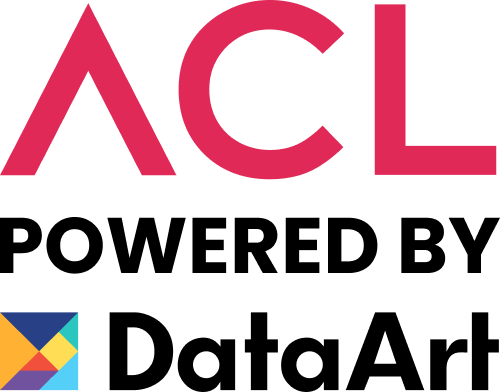Considering the current state of the outsourcing market, data has become an even more pivotal asset for IT staffing, influencing decision-making, resource allocation, and overall operational efficiency. The sheer volume and sensitivity of information handled in IT staffing require a robust framework to ensure its integrity and security - which is why a well-elaborated data policy can provide a structured approach to managing, protecting, and utilizing data within an organization. In the context of IT staff augmentation, a well-crafted data policy is crucial for safeguarding sensitive information, ensuring compliance with regulations, and maintaining trust with both clients and employees. At ACL, we understand that solidifying a data policy for your company is a much more complex endeavor than it might sound, which is why we’re dedicating today’s article to this topic. Ready to learn how to craft a data policy for IT staffing? Keep reading!
What is a Data Policy?
A data policy is a formal document that outlines an organization’s approach to managing its data assets. It encompasses rules, guidelines, and procedures for data collection, storage, access, sharing, and protection. Some of its key components typically include data classification, data ownership, access controls, data retention policies, and data security protocols.
While a data policy provides specific instructions on data management, a data governance policy sets the broader framework for how data is governed across the organization. Data governance involves the overarching strategies and responsibilities for ensuring data quality, consistency, and security, while a data policy provides the actionable steps to achieve these goals. Other related frameworks, like data stewardship and data ethics, also play a role in the overall data management ecosystem.
The Role of Data Policy in IT Staffing
In IT staffing, data policy is integral to managing the lifecycle of employee and client data. It influences how data is collected during the hiring process, how it is stored and accessed, and how long it is retained. Crafting a comprehensive data policy for IT staffing ensures that IT staffing processes are transparent, efficient, and compliant with legal standards. Data integrity ensures that the information used in staffing decisions is accurate and reliable. Security is critical to protecting sensitive employee and client data from breaches, while compliance with regulations (such as GDPR or HIPAA) is necessary to avoid legal penalties. Together, these elements of a data policy create a secure and trustworthy environment for IT staffing operations, fostering confidence among clients and employees alike. Implementing an effective data policy enhances compliance with legal and regulatory standards, fortifies data security against breaches, and streamlines operations by establishing clear guidelines for data handling and usage. This, in turn, supports the overall efficiency and effectiveness of IT staffing practices.
Key Steps in Effectively Crafting a Data Policy for IT Staffing
Step 1: Assess Current Data Management Practices
The first step in crafting an effective data policy is to conduct a comprehensive data audit. This involves evaluating how data is currently being collected, stored, accessed, and shared within the organization. The audit should cover all data touchpoints, from employee information to client databases, to gain a clear understanding of existing practices.
Once the audit is complete, the next step is to identify any gaps or vulnerabilities in current data management practices. This could include inadequate data security measures, inconsistent data retention practices, or lack of clarity in data ownership. Identifying these weaknesses is crucial for developing an effective data policy that addresses the organization’s specific needs.
Step 2: Define Data Policy Objectives
The next step is to define clear objectives for your data policy for IT staffing. These objectives should align with the organization’s overall goals and strategy. For example, if the organization prioritizes data security, the data policy crafting should emphasize strong encryption practices and access controls. It’s important to strike a balance between security, compliance, and operational efficiency. While security and compliance are paramount, the data policy steps should also be practical and not hinder daily operations. Clear objectives help guide the policy development process, ensuring that all key areas are addressed.
Step 3: Establish a Data Governance Framework
A data governance framework provides the structure needed to enforce and support the data policy for IT staffing. This framework outlines the rules, processes, and responsibilities for managing and protecting data across the organization. Clearly defining roles and responsibilities is essential for successful data governance. Data governance requires collaboration across departments. IT, HR, legal, and compliance teams must work together to ensure that the data policy is effectively implemented and followed. This collaboration helps prevent silos and ensures that data management practices are consistent across the organization.
Step 4: Drafting the Data Policy
When drafting the data policy, clarity and comprehensiveness are key. The policy should be written in clear, simple language, avoiding jargon that might confuse employees. It should also be comprehensive, covering all aspects of data management, from collection to disposal. The policy should clearly outline how data is collected, where it is stored, who has access to it, and how it can be shared. Each of these areas should be addressed with specific guidelines to prevent data breaches and ensure compliance with regulations.
Compliance with legal and regulatory requirements is a critical component of any data policy. The policy should incorporate relevant regulations, such as GDPR or CCPA, and provide guidance on how to comply with these laws. This may involve specifying data subject rights, data breach notification procedures, and data transfer requirements.
Step 5: Implement and Communicate the Policy
A data policy is only effective if it is properly implemented and communicated. Strategies for implementation might include integrating the policy into existing workflows, using technology to automate compliance, and establishing regular check-ins to monitor progress. Training is essential to ensure that all employees, especially those in IT staffing, understand and comply with the data policy. This could involve regular training sessions, e-learning modules, and providing resources such as policy manuals and quick-reference guides.
Step 6: Monitor and Update the Policy
A data policy is not a static document, it needs to evolve as the organization grows and as new regulations or technologies emerge. Regular monitoring helps identify areas where the policy might need updating. This could involve tracking compliance metrics, reviewing incident reports, and staying informed about changes in the regulatory landscape.
To assess the effectiveness of the data policy, organizations should use metrics and key performance indicators (KPIs). These might include the number of data breaches, employee compliance rates, or the speed of incident response. Regularly reviewing these metrics helps ensure that the data policy's effective development is achieving its objectives.
The Future of Data Policy in IT Staffing
Emerging Trends in Data Governance and Policy
The rapid adoption of AI, machine learning, and big data is fundamentally transforming how organizations approach data governance. These technologies enable more sophisticated data analysis, automation of decision-making processes, and predictive modeling, all of which require updated data policies to manage new risks and opportunities. For instance, AI-driven analytics may necessitate policies that address bias in algorithms or the ethical use of AI in hiring decisions. Big data, with its vast and varied datasets, demands robust data classification and security measures to ensure compliance and data integrity.
As technology advances, the ethical implications of data use are becoming increasingly prominent. Issues such as data privacy, consent, and the ethical use of employee and client data are now at the forefront of policy development. Data ethics encompasses principles that guide the responsible use of data, ensuring that it is collected and processed in ways that respect individual rights and societal norms. With the rise of privacy regulations like GDPR and CCPA, organizations must prioritize data privacy in their policies, ensuring that they meet legal requirements while also fostering trust with stakeholders.
Ready to Strengthen Your IT Staffing With a Robust Data Policy?
A well-crafted data policy for effective nearshore software development not only safeguards sensitive information but also enhances operational efficiency, builds trust with clients and employees, and ensures compliance with legal and regulatory standards. In the long term, it serves as a foundation for sustainable growth, enabling organizations to navigate the complexities of data management with confidence. Moreover, the development of a data policy should be seen as an ongoing commitment rather than a one-time task. By doing so, you can ensure that your organization’s data governance practices remain reliable, future-proof, and aligned with the best interests of the business.
If you’re ready to start your nearshore staff augmentation journey and hire developers in Latin America, we encourage you to take the first step towards securing your data and ensuring compliance by partnering with experts who understand the complexities of data governance. At ACL Tech, we can offer you nearshore technology solutions and help you craft a tailored data policy that meets your unique needs and prepares your organization for the future. Don’t wait until it’s too late to protect your data and contribute to your business’s long-term growth. Contact us today to schedule a free consultation!

.webp)




